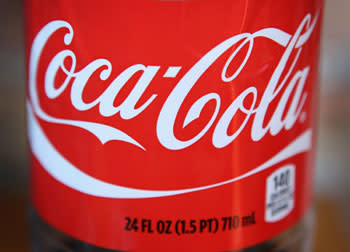 Daily Brew
Daily BrewIs Coca-Cola the new cigarette? Soda industry fight looking a lot like cigarette industry one over past decades

A number of studies have linked soft drinks, including diet ones, to type 2 diabetes, high blood pressure, heart disease, increased cancer risk and obesity. Last month a woman even died after drinking eight litres of Coke every day.
All of these negative reports may be contributing to about a 30 per cent drop in the sales of soft drinks in Canada, but producers are taking steps to prevent this from cutting into profits.
Coca-Cola, Pepsi and other rivals jointly took out an ad in the New York Times last week to promote their calorie-cutting efforts. And Canadian divisions are following suit with packaging that clearly shows the calorie count in a can or bottle.
This comes a day after the British Medical Journal published a study showing that adding a high tax on unhealthy food and drinks may slow rising obesity rates. United Nations' special rapporteur Olivier De Schutter also called for a tax on soft drinks in Ottawa on Wednesday.
But the soda industry in Canada is saying they are being unfairly blamed.
"Obesity is caused by an over-consumption of calories from all sources," said the association's director of communications Stephanie Baxter to the Toronto Star. "There is no one particular product that can be blamed."
With new packaging and calorie cutting, it's hard not to see a similarity between the soft drink industry now and the cigarette industry from a few decades ago. When studies began to show the negative effects of smoking, the industry fought it with a number of court battles, arguing they had no part in the death of people who smoked.
While cigarette packages must now display large, gross images and most people are well aware of correlation between smoking and cancer, Canadians continue to light up. According to the Canadian Tobacco Use Monitoring Survey, the smoking rate has dropped to about 17 per cent from 25 per cent in 1999. However, according to a CBC article, Neil Collishaw of Physicians for a Smoke-Free Canada said the number of current smokers is closer to 20 per cent.
So it's clear that some smokers will continue to puff regardless of the health risks associated with the habit or the packaging changes intended to discourage smoking.
To avoid cancer warnings on soda cans in California, Coca-Cola has begun modifying their recipe in the U.S. This change will eventually come north of the border and the company said consumers will not notice a change in taste.
However, avid consumers may balk at the healthy change if the taste is noticeably different.
Maybe it's time for Coca-Cola to put the health risks on the pack and let the consumer decide. Like cigarettes, packaging may not affect sales. As far as health risks go, a can of Coke doesn't seem that bad compared to many of the energy drinks out there.
And even if people are worried about the affects of cigarettes or soft drinks, they can drink their coffee. A new study found coffee drinkers seemed a little more likely to live longer than folks who drank no coffee at all.
(AFP photo)

